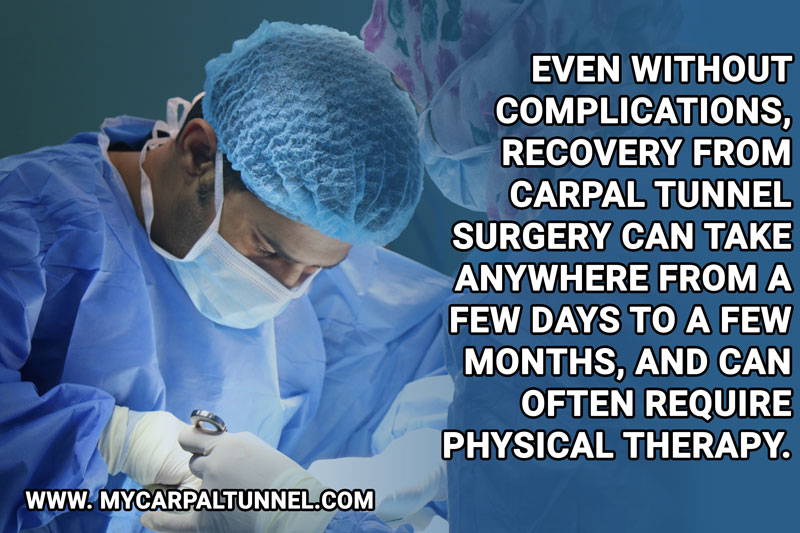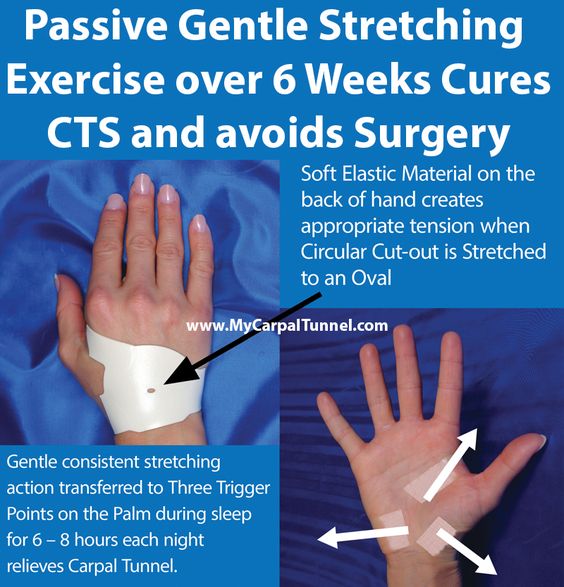How to know if carpal tunnel is infected?
Your carpal tunnel is the small inner ‘tunnel’ space between bones and ligaments, where your median nerve travels through on the edge of your wrist. This nerve affects your thumb, forefinger and long fingers, providing them with both feeling and movement. Considering how essential function is in our hands, the idea of an infection in our carpal tunnel can be terrifying. You may be wondering whether you have carpal tunnel syndrome, considering surgery, or worried about infection post-surgery — and what red flags should you be watching out for in any of those cases? Most specifically — are you at risk of infection, and how to know if carpal tunnel is infected.
Can carpal tunnel be infected?
If you’re wondering how to know if carpal tunnel is infected, the first thing to note is it almost exclusively happens post-surgery. Have you had carpal tunnel surgery, or are you considering it? Then you’ll need to work to prevent potential infection. Your carpal tunnel cannot be infected on it’s own, pre-surgery; it’s a small tunnel inside the wrist that isn’t exposed to external bacteria. If you’re experiencing carpal tunnel syndrome, that’s not an infection — that’s when those ligaments press against the median nerve in your carpal tunnel, causing discomfort or pain. In fact, CTS can be incredibly painful, and in some cases you may be tempted to pursue carpal tunnel surgery to try and repair it.
That’s when you’ll want to take a moment to stop and consider. If you pursue surgery, you’ll face the risk of infection, which occurs around 1% of the time. That might not seem like a high percentage, but it’s important to note that no matter how rare they are, these infections can be incredibly serious. If they’re not treated immediately and aggressively, carpal tunnel infections can lead to a loss of limb entirely — or even death. Is that a risk you want to take?

How To Know If Carpal Tunnel Is Infected
Like any surgery that involves an incision, there’s a chance your incision could become infected. That’s why it’s essential to monitor your incision, to make sure you’re properly caring for it every day, and to carefully stick to the wound care regiment your doctor shares with you post-surgery. You’ll probably need to spend at least 10-20 minutes every day caring for your wound to prevent infection; otherwise, the risk goes up exponentially.
Symptoms to keep an eye out for that show you how to know if carpal tunnel is infected include:
- Redness or tenderness around the wound
- Pus draining from the wound
- The wound may be painful or hot to touch
- You may experience a fever
- There may be a bad smell coming from the wound
- You might feel sick
Infections usually show up within about a month, so it’s especially important to monitor it within the first 30 days. You’ll also face a higher risk of infection if you experience diabetes, immune deficiencies, obesity, if you smoke, or if you take corticosteroids, so make sure you disclose all this information to your doctor before surgery.
And if there’s any way you can avoid surgery altogether? Well, that’s always the best option.
Why Surgery Should Be A Last Resort
Even without complications, recovery from carpal tunnel surgery can take anywhere from a few days to a few months, and can often require physical therapy. And in those 1% of patients, the instances of infection can bring disastrous consequences. Not only do you face the risk of losing your limb or your life, at minimum you’ll experience extended recovery time and a potentially extensive hospital stay, where doctors will typically prescribe powerful antibiotics administered via an I.V. In almost any situation, surgery is considered a last resort, particularly because of the risk of infection.
If at all possible, treating CTS non-surgically is the best way to avoid infection and further complications. Thankfully, there are many ways to treat this issue; if you can provide relief for your median nerve, you’ll soon experience a lapse in symptoms. But don’t delay — if you ignore the pain, it could become exponentially worse.

Non-Surgical Ways to Recover from Carpal Tunnel Syndrome

The key to Carpal Tunnel Syndrome treatment is releasing pressure from that median nerve. If you believe you have CTS or have been diagnosed, start treatments as soon as possible — the sooner you deal with the problem, the less likely you’ll need surgical treatment. First, make sure there are no underlying issues, such as arthritis or diabetes, that could be causing your CTS. Then adjust whatever habit or lifestyle that might be causing the compression. Give the wrist plenty of rest, and stop whenever you feel symptoms flare up. Exercises like yoga have been shown to ease the symptoms of carpal tunnel, and cold packs or anti-inflammatory medicines can help with the swelling.
One of the simplest, most affordable ways to treat Carpal Tunnel Syndrome — with the lowest risk — is The Carpal Solution. This unique new therapy was developed by doctors who specialize specifically in CTS treatment, and has been shown to provide complete remission from CTS within six weeks. It’s pain-free and incredibly easy to implement: simply wear the specially designed brace during sleep and enjoy relief from symptoms within a month and a half. During this time, the Carpal Solution gently reshapes the soft tissue in and around your carpal tunnel by tugging on three key points on the palm. This gentle but consistent stretching motion releases pressure from the median nerve without interrupting your life, daily activities, or job.




